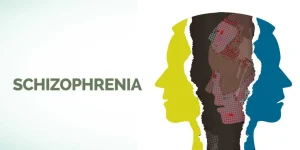Understanding the Management of Schizophrenia
The management of schizophrenia is a multifaceted process that focuses on improving the quality of life for individuals living with this chronic and severe mental health disorder. Schizophrenia affects how a person thinks, feels, and behaves. Common symptoms include delusions, hallucinations, disorganized speech, and cognitive challenges. While there is no definitive cure, a comprehensive approach can effectively manage symptoms and foster stability.
1. Early Diagnosis and Management of Schizophrenia
Timely diagnosis is essential in the management of schizophrenia. Early intervention enables mental health professionals to devise personalized strategies tailored to the individual’s needs. Comprehensive evaluations, including psychological assessments and family history analysis, offer insights into the condition’s severity and progression.

This step not only reduces the impact of symptoms but also provides a roadmap for families to navigate the complexities of the condition effectively. Early intervention programs also aim to prevent further deterioration of mental and social functioning.
For more information on recognizing mental health conditions, visit NIMH.
For Consultant with the Best Psychiatrist in Delhi for the Best OCD Treatment in Delhi, consider visiting:
2. Therapeutic Interventions for Schizophrenia Management
Therapy plays a pivotal role in the management of schizophrenia. Evidence-based methods, such as cognitive behavioral therapy (CBT), empower individuals to address and reshape distressing thought patterns. Family therapy enhances communication and understanding among loved ones, creating a supportive environment.
Additionally, psychoeducation for both patients and families is essential. This helps everyone involved to better understand the condition, its triggers, and coping mechanisms, contributing to a more cohesive support system.
Learn more about therapeutic approaches at SAMHSA.
3. Developing a Structured Routine
Establishing a structured daily routine is another critical aspect of the management of schizophrenia. A predictable schedule reduces stress and promotes stability. Incorporating activities like exercise, personal hygiene, and hobbies can help individuals maintain a sense of normalcy.
4. The Role of Caregivers in Schizophrenia Management
Caregivers and family members are integral to the effective management of schizophrenia. Educating them about the condition fosters empathy and enables them to provide meaningful support. Community support groups and caregiver networks are invaluable resources for sharing experiences and solutions.
Visit MentalHealth.gov for caregiver support.
5. Stress Management Techniques
Managing stress is critical to preventing symptom flare-ups. Techniques such as mindfulness, yoga, and relaxation exercises have proven to be effective in the management of schizophrenia. Cultivating a calm environment also helps individuals navigate daily challenges more effectively.

6. Social and Vocational Support
Rehabilitation programs focusing on social and vocational skills are essential for the management of schizophrenia. These programs help individuals develop life skills, build confidence, and reintegrate into society. Social inclusion significantly improves emotional well-being and independence.
For information on vocational training, visit Vocational Rehabilitation Services.
7. Regular Monitoring and Professional Support
Ongoing monitoring is a cornerstone of the management of schizophrenia. Regular appointments with mental health professionals help track progress and adapt care plans as needed. Open communication between patients, families, and healthcare providers ensures holistic care.
The Importance of Advocacy
Advocating for better resources and reducing stigma surrounding schizophrenia is vital for improving the lives of those affected. Awareness campaigns highlight the importance of early intervention and equitable access to care.

Conclusion
The management of schizophrenia requires a collaborative approach involving early diagnosis, therapeutic interventions, structured routines, and caregiver support. By leveraging professional resources and fostering a supportive environment, individuals can lead fulfilling lives and actively contribute to their communities. With consistent care and compassion, people with schizophrenia can overcome challenges and unlock their potential. Together, we can work toward a society that embraces mental health awareness and inclusivity.
For comprehensive mental health resources, visit CDC Mental Health.